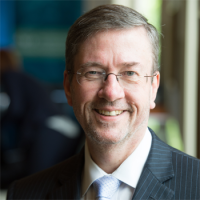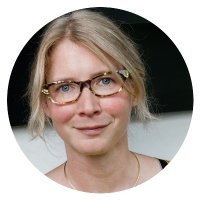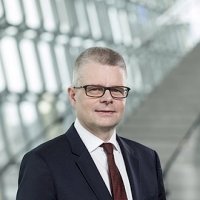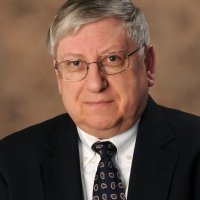The Arctic and World Order
Daniel S. Hamilton and Kristina Spohr present their new book The Arctic and World Order with Mike Sfraga, Ambassador Einar Gunnarsson of Iceland, currently the Chair of Senior Arctic Officials of the Arctic Council, and fellow authors, including Wilson Fellow Lawson Brigham and Université de Montréal professor Suzanne Lalonde.
The Arctic, long described as the world’s last frontier, is quickly becoming our first frontier – the place where the contours of our rapidly evolving world may first be glimpsed. The Arctic has become the front line in a world of more diffuse power, sharper geopolitical competition, and deepening interdependencies between people and nature. A space of often bitter cold, the Arctic is the fastest-warming place on earth. It is humanity’s canary in the coal mine – an early warning sign of the world’s climate crisis.
In this new book, scholars and practitioners – from Anchorage to Moscow, from Nuuk to Hong Kong – explore the huge political, legal, social, economic, geostrategic and environmental challenges confronting the Arctic regime, and what this means for the future of world order.
The book is available online here and is available for purchase via Brookings Institution Press.
Selected Quotes
Daniel S. Hamilton
“This [Arctic] regime has pioneered many different innovative ways of peoples working together, countries and peoples. It offers lots of lessons, lots of interesting insights into how governance can work, not only in the Arctic but in many other parts of the world.”
“What is interesting to me about the Arctic regime, not just the Arctic Council but all the other innovative things, is that indigenous peoples are full participants in many of these, they drive the agenda, they are part of that regime. For non-state actors like that to be involved at an equal eye-level is really I think an interesting lesson for lots of other regional regimes elsewhere in the world that struggle with that kind of question.”
Kristina Spohr
“Strategically, at the forefront of the Cold War face-off between America and the Soviet Union more recently, for several decades now the Arctic enjoyed exceptionally good and peaceful international cooperation and it emerged as an exemplary area of increasingly effective assertion also of indigenous rights.”
“In the Arctic we can see how the nexus and interplay of people, power and environment will unfold in the future.”
Einar Gunnarsson
“It is both an exciting and challenging time to chair the Arctic Council. Iceland’s chairmanship program together towards a sustainable Arctic, seeks to balance the three pillars of sustainability: society, environment and economy.”
“We need stronger global action to reduce emissions and in the Arctic we need strong adaptation efforts to deal with the drastic impacts climate change is already causing in our part of the world.”
“Even though the Arctic Council explicitly excludes military security in its mandate, it is important to us all that the Arctic remains a region of peace, stability and constructive international cooperation. The fact that the Arctic is currently a low tension area is due to a conscious effort by the governments of the eight Arctic states. So far, we have not let tension or stress elsewhere affect the good relationship and cooperation that exists amongst the Arctic states. If that changes there is much more to lose than to gain.”
Suzanne Lalonde
“What used to be a bit of a discussion between Canadian and American colleagues and government officials is starting to take on a bit more importance.”
“Whatever discussion happens about the Northwest Passage has to include indigenous rights holders and the [Canadian] federal government has come to that realization.”
Lawson Brigham
“The rules and regulations of the northern sea route are evolving to make it more of a domestic and internal waterway, than really an international waterway open for global business. In the near term we see much more control of this space by the Russian Federation and using this space as their own Arctic national waterway again for destination voyages for moving cargo to global markets.”
“We need more communication between the ships and the communities. We need more information on indigenous hunting and fishing areas and all of that information needs to be compiled and passed to the mariners.”
Marc Lanteigne
“Beijing is not in a very good position to be revisionist. It is not really in a position to take a disruptive or unilateral approach to the region.”
“I would say that China’s priority right now, in addition to gathering necessary information about what this particular part of the world is going to mean for China’s interests across the board, is to be accepted as an Arctic stakeholder.”
Arild Moe
“Big changes in international energy markets, particularly the gas market with natural gas, made Arctic gas suddenly becoming almost obsolete.”
"The overarching problem and threat from climate change makes long-term investments in hydrocarbon projects anywhere, but not least in the Arctic, very uncertain.”
“There are things happening in the Arctic, certainly in the transportation fleet, very fast developments of onshore hydrocarbons in the Arctic.”
Speakers


Professor, London School of Economics and Political Sciences


Fellow, Center for Arctic Study & Policy, U.S. Coast Guard Academy

Moderator

US Ambassador-at-Large for Arctic Affairs; Former Chair, US Arctic Research Commission
Hosted By

Global Europe Program
The Global Europe Program is focused on Europe’s capabilities, and how it engages on critical global issues. We investigate European approaches to critical global issues. We examine Europe’s relations with Russia and Eurasia, China and the Indo-Pacific, the Middle East and Africa. Our initiatives include “Ukraine in Europe”—an examination of what it will take to make Ukraine’s European future a reality. But we also examine the role of NATO, the European Union and the OSCE, Europe’s energy security, transatlantic trade disputes, and challenges to democracy. The Global Europe Program’s staff, scholars-in-residence, and Global Fellows participate in seminars, policy study groups, and international conferences to provide analytical recommendations to policy makers and the media. Read more


Polar Institute
Since its inception in 2017, the Polar Institute has become a premier forum for discussion and policy analysis of Arctic and Antarctic issues, and is known in Washington, DC and elsewhere as the Arctic Public Square. The Institute holistically studies the central policy issues facing these regions—with an emphasis on Arctic governance, climate change, economic development, scientific research, security, and Indigenous communities—and communicates trusted analysis to policymakers and other stakeholders. Read more


Canada Institute
The mission of the Wilson Center's Canada Institute is to raise the level of knowledge of Canada in the United States, particularly within the Washington, DC policy community. Research projects, initiatives, podcasts, and publications cover contemporary Canada, US-Canadian relations, North American political economy, and Canada's global role as it intersects with US national interests. Read more


Kennan Institute
The Kennan Institute is the premier US center for advanced research on Eurasia and the oldest and largest regional program at the Woodrow Wilson International Center for Scholars. The Kennan Institute is committed to improving American understanding of Russia, Ukraine, Central Asia, the South Caucasus, and the surrounding region though research and exchange. Read more


Kissinger Institute on China and the United States
The Kissinger Institute works to ensure that China policy serves American long-term interests and is founded in understanding of historical and cultural factors in bilateral relations and in accurate assessment of the aspirations of China’s government and people. Read more


Indo-Pacific Program
The Indo-Pacific Program promotes policy debate and intellectual discussions on US interests in the Asia-Pacific as well as political, economic, security, and social issues relating to the world’s most populous and economically dynamic region. Read more


Environmental Change and Security Program
The Environmental Change and Security Program (ECSP) explores the connections between environmental change, health, and population dynamics and their links to conflict, human insecurity, and foreign policy. Read more
